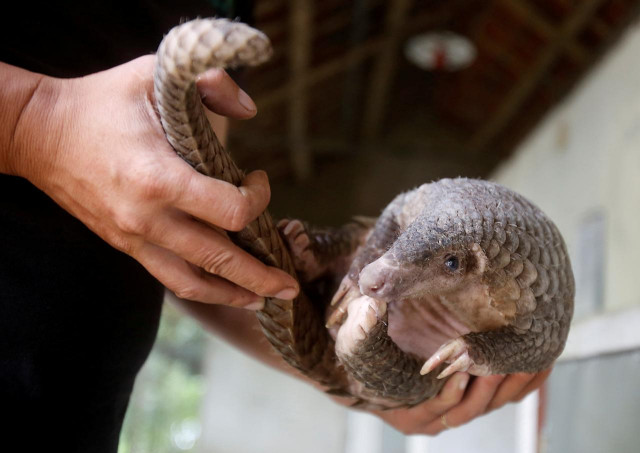Animal cruelty, diseases, the environment and us
Farmed animals are treated as commodities rather than living things

A Reuters image.
We have seen a range of major zoonotic disease outbreaks in recent years, ranging from avian flu, swine flu, mad cow disease, SARS, to Covid-19. Zoonotic diseases spread from animals to humans, and while Chinese wet markets have become the target for much indignation, the cause of these diseases is much more widespread. Industrial-scale animal agriculture which includes poultry farms, slaughterhouses, and intensive livestock farming in both rich and poor (and Muslim and non-Muslim) countries are a part of this problem.
Farmed animals are treated as commodities rather than living things. Chickens, for instance, have been modified to the extent that they look nothing like the original red jungle fowl it was. Modern broiler chicken has breasts so large it can barely walk. The cruelty with which chickens (and other animals) are bred and slaughtered are also a cause for distraught, yet we have made a social choice of becoming oblivious to this issue.
Our intensive food production processes, with animals crammed into small spaces to produce milk, eggs, or for the purposes of slaughter, create a fecund ground for pathogens to jump to livestock and humans. While zoonotic threats are multiplying, combating them is becoming increasingly harder. Scientists are pointing out how the widespread abuse of antibiotics for farm animals, to speed up growth rates, or as a preemptive measure against the spread of disease on overcrowded factory farms is a major factor for growing antibiotic resistance.
In the quest to produce and consume ever increasing amounts of animal products, we have been encroaching on wildlife habitats with reckless abandon, including fish stocks in the oceans. The amount of meat and other animal products (milk, cheese, etc.) consumed by the increasing global population, with its rising income levels, has now reached staggering proportions.
Our planet is now facing growing water constraints as our freshwater reservoirs and aquifers dry up. A 2013 study in Water Resources and Industry, noted that farming uses up to 92% of our freshwater, and nearly one-third of this water is used by farm animals (and much else is used to grow non-edible cash crops such as cotton). A third of the world’s grain is diverted to feed farm animals while millions of people are still undernourished and hungry. Widespread animal farming also contaminates scarce freshwater water supplies with fertilisers, pesticides, and animal excreta.
Cooked meat may have been partially responsible for larger human brains. Anthropologists also point out how the domestication of certain animals marked the beginning of human agricultural history and the rise of civilisation. Hunting, and then domestication of animals, has played an important role in our human story and what we are today. Yet, eating meat no longer seems necessary for our survival. Meat production has also become increasingly cruel and is creating public health and environmental threats that are undermining our well-being.
While it is the responsibility of policymakers and businesses to transform the global food system, ordinary citizens do have some agency here, of becoming more sensitised to these issues and alter their consumption patterns.
In more consumer savvy economies, many people with money to spare have begun to pay more for hormone- or antibiotic-free meat and dairy products or cage-free eggs. Besides veganism and vegetarianism, reducing the amount of meat and other animal products consumed, even if it means paying for better quality products, are also alternative strategies that we can opt for.
Published in The Express Tribune, May 1st, 2020.
Like Opinion & Editorial on Facebook, follow @ETOpEd on Twitter to receive all updates on all our daily pieces.














COMMENTS
Comments are moderated and generally will be posted if they are on-topic and not abusive.
For more information, please see our Comments FAQ